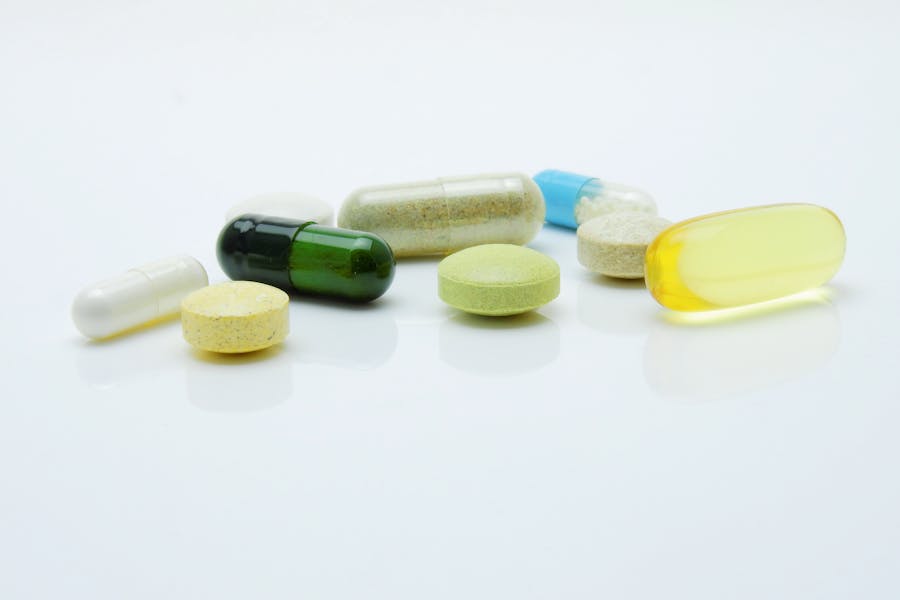Taking the abortion pill is a significant decision, often accompanied by numerous questions and concerns. One common worry is about the physical changes post-procedure, mainly, “Will my stomach go flat after the abortion pill?” Knowing what to expect can help alleviate these anxieties. The abortion pill, a medical abortion method, uses a combination of medications to terminate a pregnancy. While generally safe and effective, it can lead to various physical changes as your body adjusts. This article dives into the specifics of what happens to your stomach after taking the abortion pill, offering a comprehensive guide to managing your expectations. We’ll explore the factors that influence abdominal changes, the timeline for physical recovery, and tips for promoting a healthy post-abortion recovery.
This guide provides a clear understanding of how your body, particularly your stomach, might change after taking the abortion pill, aiming to offer reassurance and practical advice for anyone navigating this experience.
Will My Stomach Go Flat After Abortion Pill?
Yes, your stomach may go flat after taking the abortion pill, but it depends on various factors, such as how far along you were in your pregnancy, your overall health, and how your body responds to the medication. Generally, after you terminate the pregnancy, the bloating associated with pregnancy begins to subside, and your stomach may gradually return to its pre-pregnancy state. However, following post-care instructions and consulting with your healthcare provider for personalized advice is essential.
What Is the Abortion Pill Process?
The abortion pill involves two medications: mifepristone and misoprostol. Mifepristone blocks the hormone progesterone, essential for pregnancy continuation. Misoprostol induces uterine contractions to expel the pregnancy. This medical abortion process is effective within the first 10 weeks of pregnancy.
When you take the abortion pill, your body undergoes significant hormonal changes. These changes can cause various physical symptoms, including abdominal cramping and bleeding, similar to a heavy menstrual period. Understanding these symptoms is crucial for managing your expectations. One common concern is whether the stomach will go flat after the abortion pill.
Typically, the bloating associated with early pregnancy will subside after the procedure. However, this can vary depending on individual factors such as body type, the duration of the pregnancy, and overall health. The timeline for physical changes varies. Some people may notice their stomach returning to its pre-pregnancy state within a few days, while for others, it might take a few weeks.
It’s important to follow post-abortion care guidelines to support your body’s recovery process. Engaging in light physical activity and maintaining a healthy diet can promote recovery. Staying hydrated and avoiding processed foods can help reduce bloating and support a quicker return to your usual abdominal appearance. However, always consult with your healthcare provider for personalized advice.
What Factors Influence Abdominal Changes Post-Abortion?
Several factors influence abdominal changes after taking the abortion pill:
- Duration of Pregnancy: The further along the pregnancy, the more pronounced the physical changes, including abdominal enlargement. Consequently, the time it takes for the stomach to go flat may be longer for later-term pregnancies.
- Individual Health and Body Type: Each person’s body responds differently. Factors such as metabolism, muscle tone, and overall health can influence how quickly the stomach returns to its pre-pregnancy state.
- Hormonal Adjustments: The abortion pill causes significant hormonal shifts, affecting bloating and fluid retention. As hormone levels stabilize, a reduction in abdominal swelling is usually observed.
- Post-Abortion Care: Adhering to post-abortion care instructions, including taking prescribed medications and attending follow-up appointments, is crucial for a smooth recovery and can impact the rate at which the stomach returns to normal.
- Physical Activity and Diet: Light physical activity and a balanced diet can help reduce bloating. And support overall recovery. Staying hydrated and avoiding processed foods can further aid in returning the stomach to its pre-pregnancy appearance.
- Psychological Factors: Stress and anxiety can impact physical recovery. Practicing relaxation techniques and seeking emotional support can positively influence the recovery process.
Post-Abortion Care Tips
To help yourself after taking the abortion pill is crucial for a smooth recovery and to help your body Return To its pre-pregnancy state. Here are some detailed tips to ensure effective post-abortion care:
- Rest and Recovery: Your body needs time to heal after taking the abortion pill. Plan for a few days of rest and avoid strenuous activities. Pay attention to your energy levels and take breaks to avoid overexertion.
- Stay Hydrated: Hydration reduces bloating and supports overall health. Aim to drink at least 8-10 glasses of water a day. Avoid caffeine and alcohol as these can dehydrate your body and should be limited during your recovery period.
- Healthy Diet: To aid recovery, focus on a balanced diet rich in fruits, vegetables, lean proteins, and whole grains. Lowering your salt intake can help decrease bloating and fluid retention. Eating smaller, more frequent meals can help manage nausea or digestive discomfort.
- Light Physical Activity: Engage in light activities such as walking to improve circulation and reduce bloating. Avoid heavy lifting and high-impact exercises until your healthcare provider gives the green light. Gentle stretching or yoga can promote relaxation and help ease muscle tension.
- Follow Medical Advice: Take any prescribed medications as directed, including pain relievers or antibiotics if necessary. Ensure you attend all scheduled follow-up appointments to monitor your recovery and address complications.
- Manage Pain and Discomfort: Over-the-counter pain relievers such as ibuprofen can help manage cramping and discomfort. Applying a heating pad to your lower abdomen can help soothe cramping.
- Monitor for Complications: Be aware of signs of infection such as fever, foul-smelling discharge, or severe abdominal pain. Contact your healthcare provider if you experience any of these symptoms. Some bleeding and cramping are normal, but if you experience heavy bleeding (soaking through more than two pads an hour) or severe pain, seek medical attention.
- Emotional Support: Contact friends, family, or a counselor to discuss your feelings and emotions. Emotional support is an integral part of recovery. Engage in activities that promote relaxation and well-being, such as reading, listening to music, or practicing mindfulness.
- Avoid Sexual Activity: Avoid sexual intercourse until your healthcare provider confirms it is safe to do so. This helps prevent infection and allows your body to heal.
- Follow-Up Care: Regular check-ups with your healthcare provider ensure that your recovery is on track and help address any concerns promptly. Discuss contraceptive options with your provider to prevent unintended pregnancies in the future.
How to Promote a Healthy Recovery After Taking the Abortion Pill
Rest and Recovery Time
Adequate rest is essential for recovery. After taking the abortion pill, your body undergoes significant changes, and it needs time to heal. It’s essential to plan for a few days of rest where you avoid strenuous activities. Ensure you have a comfortable, relaxing space, and permit yourself to take it easy. Pay attention to your body’s signals and avoid overexertion, which can delay recovery.
Hydration
Staying well-hydrated helps reduce bloating and supports overall health. Drinking plenty of water is crucial as it aids in flushing out toxins and maintaining bodily functions. Aim for at least 8-10 glasses of water a day. Hydration also helps reduce bloating, which can be a common discomfort post-procedure. Avoid caffeine and alcohol, as they can dehydrate your body and should be limited during your recovery period.
Nutritional Support
A balanced diet can significantly aid in recovery. Focus on consuming nutrient-dense foods such as fruits, vegetables, lean proteins, and whole grains. These foods provide the essential vitamins and minerals your body needs to heal. Reducing salt intake is also beneficial, as excessive salt can increase bloating and fluid retention. Eating smaller, more frequent meals can help manage any nausea or digestive discomfort you might experience after the procedure.
Gentle Physical Activity
Engaging in light physical activities can be beneficial for your recovery. Activities such as walking can improve circulation, which aids in reducing abdominal swelling and promoting overall health. Avoid heavy lifting and high-impact exercises until you get clearance from your healthcare provider. Gentle stretching or yoga can also promote relaxation, ease muscle tension, and support your mental well-being.
Mental Health
Taking care of your mental health is equally essential during recovery. The emotional impact of an abortion can be significant, and it’s essential to seek support if needed. Talk to friends, family, or a counselor to discuss your feelings and emotions. Engaging in activities that promote relaxation and well-being, such as reading, listening to music, or practicing mindfulness, can also help. It’s important to acknowledge and address your emotional needs as part of your overall recovery process.
Follow-Up Care
Regular follow-up with your healthcare provider ensures proper recovery and helps address any complications. Attend all scheduled follow-up appointments to monitor your progress and ensure the procedure is complete. Your healthcare provider can also provide additional guidance on managing ongoing symptoms and offer advice tailored to your situation. Discuss your concerns and adhere to the recommended post-care instructions to support recovery.
Conclusion
Wondering, “Will my stomach go flat after the abortion pill?” is a common concern, and the answer is often positive. Many people experience their stomach returning to its pre-pregnancy state after taking the abortion pill, although the timeline and extent of this change can vary based on several factors. By understanding what to expect and following post-abortion care guidelines, you can help ensure a smooth recovery. Always consult your healthcare provider for personalized advice and support to effectively guide you through this process.
FAQs
1. How long does it take for the stomach to go flat after taking the abortion pill?
The timeline varies, but many people notice a reduction in bloating within a few days to weeks. A complete return to the pre-pregnancy state can take up to a month or more.
2. What can I do to help my stomach go flat after taking the abortion pill?
Engage in light physical activity, maintain a healthy diet, stay hydrated, and follow your healthcare provider’s post-care instructions.
3. Is it normal to experience bloating after taking the abortion pill?
Yes, bloating is a common symptom of hormonal changes that can persist for a few days to weeks.
4. When should I contact my healthcare provider after taking the abortion pill?
Contact your healthcare provider if you experience severe pain, heavy bleeding, fever, or any other concerning symptoms.
5. Can stress affect my recovery after taking the abortion pill?
Yes, stress can impact physical recovery. Practicing relaxation techniques and seeking emotional support can help.










